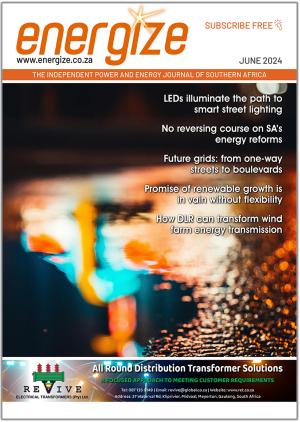A more detailed look at regulation and policy is required to support new developments in the renewable energy industry, says Lena Chirwa, Head of Legal and Corporate Affairs for sub-Saharan Africa at Enel Green Power South Africa (EGP RSA) and recent appointee to the South African Photovoltaic Industry Association (SAPVIA) board.

Chirwa’s appointment to the SAPVIA board comes at a time of significant development and change in the renewable energy sector. In renewed efforts to address South Africa’s energy issues, President Cyril Ramaphosa recently announced government’s intention to accelerate the procurement of new capacity from renewables, gas and battery storage.
The licensing threshold for embedded generation was also removed. This will open the market to further opportunities for private power purchase arrangements (PPAs) and solutions. In addition, relevant government departments are working together to ensure that all projects from Bid Window 5 of the renewable energy programme are able to start construction on schedule.
“These developments signal an intention to liberalise the market and introduce more renewables. They are welcome developments for the solar sector but will require review and expansion of the current conditions, regulations and policies to support them and further deploy renewable energy to the country – and this is where SAPVIA and similar bodies can play a meaningful role.”
Chirwa believes she is well positioned to contribute positively to conversations and solutions aimed at advancing the solar sector in South Africa, while simultaneously supporting the country’s efforts to access energy and grow the economy.
“I have been involved in the sector since the inception of the Renewable Energy Programme in South Africa in 2011 and I believe I can make a valuable contribution to the thought leadership and the institutional knowledge of the association with the experience and insights I have gained over the years.”
A lawyer by training, Chirwa has accumulated extensive experience in project finance and infrastructure deals in the renewable energy sector, having advised players in the industry from a lending as well as a sponsor perspective.
Employed at EGP RSA, her primary responsibility is to manage and mitigate legal risk in the business and, as a member of the management team, to help provide strategic decisions regarding project investments.
Chirwa says the private sector has a leading role to play in the country’s energy transition. “SAPVIA can leverage its members experience, capabilities and market insights to collaborate with other stakeholders and Government to support the formulation of regulation and policies for the renewable energy sector.”
EGP RSA has achieved this with an embedded localisation strategy and although it is part of a multinational group of companies, it is integrated in the country and has localised its expertise. Most of its employee base is made up of black South Africans and notably, the management group comprises 80% black women.
“I think EGP RSA’s unique contribution to associations like SAPVIA is to show that it is possible for renewable energy companies to deliver electricity needs, but at the same time do so in support of national development needs,” notes Chirwa.
One of Chirwa’s key objectives as a SAPVIA board member is to promote engagement amongst all stakeholders in the industry, including manufacturers, suppliers, consumers, and youth. “There is a lot of innovation in solar and I think it is really important to engage with all stakeholders, disseminate information around the efficiency of solar and talk to its capacity to change lives on an everyday basis.
“It is particularly important to include the youth as a key stakeholder in the future of the energy landscape in the country. As members of the association, I believe we should engage in awareness sessions and training programmes to empower youth to start their own green enterprises and become active participants and custodians of the renewable energy sector.”
She concludes by saying solar is the most efficient form of energy in terms of cost and speed of delivery. “The challenge for the solar sector is that we still need further regulatory and policy reform to deploy solar at the scale and pace that’s required to address the very urgent electricity needs in the country.”
Contact Kim Thomas, SAPVIA, Phone 021 200-5856, kim@sapvia.co.za , www.sapvia.co.za
















